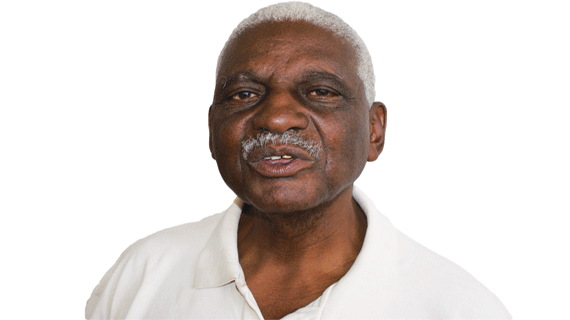
THE ABOVE question has already been partly answered in earlier articles. It was pointed out that there is blood relationship and social relationship. The word “relative” is not easy to define.
The Longman Dictionary of Contemporary English, new edition (1988) defines it as follows: relative: “ My uncle is my closest living relative.” That is all it says.
Of course, this is meaningless as it may mean several unrelated things, such as, closest friend, partner and neighbour and so on. For our purpose we will understand that a relative is that person who has biological connection (directly or indirectly) with you.
The Ndebele definition of relative would be somewhat different from the English.
In his Isichazamazwi SesiNdebele Hadebe says: “Isihlobo ngumuntu elizalanayo.” Yes, but . . .? Iliza libethwe-ke, umntanomkakho, liyazalana na? kodwa phela yisihlobo sakho, ngumntanomkakho, ngumntanakho. Ligazi linye yini?
Further Ndebele says: “Isinini ngumuntu elilobudlelwano begazi.”
And he goes on to say, “Isihlobo ngumuntu elizwananayo kakhulu.”
Umuntu okusizayo ke loba lingazani, lingezwani? Uyisihambi, lowomuntu akuphe ilalo, ukudla lomphako?
- Chamisa under fire over US$120K donation
- Mavhunga puts DeMbare into Chibuku quarterfinals
- Pension funds bet on Cabora Bassa oilfields
- Councils defy govt fire tender directive
Keep Reading
Your girlfriend, liyazwanana kakhulu! Indeed it is difficult to give a comprehensive definition of the term “relative” or isinini. In Ndebele there are several loose definitions. For example, Nxumalo and Khabo are meeting for the first time:
Nxumalo: Sawubona baba
Khabo: Siyabonana sinini sami
Nxumalo: Kunjani?
Khabo: Awu, sihlobo sami, sihamba lakho. Ngiyaphila.
(The above conversation is high-class Ndebele which many of citizens should emulate)
Since English and Ndebele do not have equivalents in most cases we will stick to the Ndebele way. For instance, umalume is not an equivalent of uncle as malume has maternal reference only, that is your mother’s brother, whereas in English it refers to both your father’s and mother’s brother.
The word brother refers to your male sibling only in English, but mnewethu is a wider term not only to your elder male sibling, but to what English would call cousin .
In Ndebele the relationship with siblings and other blood relations in fairly straightforward to someone familiar with Ndebele culture.
It gets complicated however, as it spreads out to embrace persons, for instance, related as a result of the marriage system.
Your grandfather married a MaNdlovu (ugogo wakho). The brother of your grandmother is your relative, your babamkhulu. His sons are your relatives as ubabomdala or omncane while his daughters are your babakazi.
Their children, that is, the males are your abafowenu like your siblings while the offspring of the females are abazawakho.
This relationship complicates more when it comes to the children’s children. They are still relatives, but bayini kwabanye?
Mind-boggling, isn’t it? Some people would argue that the blood relationship is diluted through the marriage process down the generations.
Consider this, my brother marries and the blood relationship between his son and me has somewhat been diluted for he also shares his mother’s blood which I don’t.
His son gets married and the process of dilution continues. The blood relationship of my brother’s offspring and my offspring keeps drifting apart until they are not aware (or do not own) that they are relatives.
The son of my father’s sister ngumzawami and his children ngabantwabami. Ngabafowabo of my children and I am babamkhulu to their children.
The husband of my father’s sister (ubabakazi) is both umkhwenyethu and umkhwenyana. Suppose he is a polygamist and has children with another woman. Are they my relatives? In Ndebele, yes, ngabazawami. But they cannot inherit my possessions even if I do not have a male heir.
In Ndebele much of the relationship is implied by the marital system.
My wife’s father is my ubabazala. I apply the same term to his son, umlamu wami, as also my ubabazala. The son’s son’s son’s, ad infinitum, are my babazalas and their daughters (all of them) ngabalami bami, ngiyalamuza njengokuthanda. They say mkhwenyethu to me, the boys say mkhwenyana also.
In Ndebele the relationships are accompanied by certain mores and acts of respect. For example my father’s sister, my aunt, is a central figure in the family . We the children of our father regard her as a close friend with whom we can share secrets .
We tell her about our girlfriends/boyfriends, we appeal to her when our father is ill-treating us, we ask her for any advice of our secret lives , and so on.
We respect her so much, a kind of relaxed respect . All elders must be deferred to by children because of their experience and knowledge.
The child belongs to all the relatives and they must be prepared to step in and help the child whenever need arises .You can’t say: Kasuye mntanami. If you have means mgqokise, mfundise, menzele loba yini yokumcedisa.
We have meandered in trying to answer the question Who is your relative?
There is no definitive answer, but it is obvious that those people who have blood connection by way of descent are relatives.
They may be regarded as direct relatives. But blood relations get diluted mainly by way of marriage and some relatives eventually become distant.
But, and a strong But, esiNdebeleni ubuhlobo buyaqakathekiswa, buyaqakiswa, buyagogoswa, buyakhuselwa.
Yazi izihlobo .










